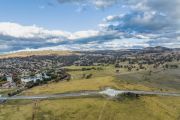
Hotel hunters back on the saddle searching for bargains
Hotels are consolidating their post-pandemic reputation as one of the better-performing property sectors, yet sales transactions are rare in a fragmented sector dominated by single-asset owners.
But signs of life are emerging, even though vendor expectations remain too high. When deals do take place, stained carpets and mouldy carpets just won’t do: buyers are looking for assets they can refurbish or improve in other ways such as replacing the operator.

“Most of the buyers are looking for a value-add play because that’s what they need to be doing to get returns that meet the requirements of investors,” says Colliers head of hotels and transaction services Karen Wales.
“Therefore a rebranding and repositioning strategy goes along with the investment.”
Colliers reports national hotel sales are well below the average of about 40 a year. Since January $800 million of deals – worth more than $5 million each – have been transacted, compared with $1.5 billion previously and $600 million in pre-pandemic 2019.
“As with all sectors, capital raising has become harder because of interest rates, so the fact we have done $800 million is still positive,” Wales says.
Sydney fund Serene Capital this month bucked the trend by acquiring the Sebel Melbourne (now Rydges) in eastern suburban Ringwood, for around $30 million.
In April, the ASX-listed MA Financial splashed out $96 million for the Sheraton Four Stars in Melbourne’s Docklands – now operating under the Vibe banner – to seed a new fund that aims for assets of $1 billion.
At the same time, Shakespeare Property Group bought the heritage Woolstore1888 hotel in Sydney’s Pyrmont for $55 million. This month the Cosgrove Group – the entity of Alan Bond’s grandson Banjo Bond – paid $88.5 million to buy the “trophy” Esplanade Fremantle from Centuria Capital.
MA Financial managing director Anthony O’Hea says the fund prefers to stick to Sydney and Melbourne, which are “by far the deepest and widest markets” for both corporate and leisure travellers.
“We try to own hotels that address as many of those travellers across as many segments as possible,” he says.
O’Hea says the fund looks for assets that enable financial improvement – such as via minimum rent guarantees – or physical measures such as installing in-room kitchenettes with a view to longer-stay guests.
Serene’s 103-room Ringwood hotel had undergone a $30 million upgrade and next month converts to the Rydges banner. The hotel is the 13th asset for Serene Capital’s $440 million open-ended wholesale hotel fund, which owns properties in Sydney, Canberra, Brisbane and Perth.

Serene chief executive Glen Boultwood says the purchase suited the fund’s agenda of buying hotels exposed to corporate and government-driven demand rather than leisure.
The fund is now hunting for its 14th assets for the fund – with an eye on something below replacement cost or from a distressed owner.
“A good example is the Adina Barricks Plaza in Perth, which we bought out of liquidation,” Boultwood says.
“There was nothing wrong with the asset, it was doing a phenomenal yield.”
As with Basil Fawlty, many hotel owners simply are not natural hotel proprietors. “They may have done it as a development, but it proved to be too hard, and they become stuck with the asset,” Boultwood says.
MA Financial’s O’Hea says deals are likely to be done at around 20 per cent less than replacement value. At the same, time, development has become “prohibitively expensive” and that protects the asset from new competition.
Research house CoStar estimates Sydney occupancies have recovered to 93 per cent of 2019 levels, with Melbourne hotels rebounding 86 per cent in a market in which 22 new hotels have opened since 2019.
CoStar regional director Matthew Burke says Sydney operators grew their average daily rates by 22 per cent between May 2019 and May this year, while Melbourne hoteliers managed 17 per cent.
“In absolute terms Sydney has a $54 premium [over Melbourne] with absolute average daily rates of $273,” Burke says.











